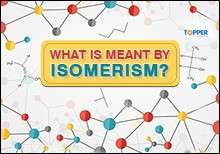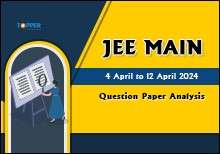How to Score above 90 in Social Science CBSE Class 10 board Exam

Clear your mind and dispel your doubts before your Social Science CBSE Class 10 board exam
By 19th Feb, 2018 | 12:29 pm
Share
The Class 10 board exams are the first major exams that you will be facing soon, and clearing these exams will be your first step towards achieving your academic and career goals. Social Science CBSE Class 10 board Exam are just a month away. So how are you feeling a month before the exams? Nervous, confused or scared?
Well, you don’t need to be nervous or confused, because we at TopperLearning are here to help you. You can also always go through past year papers or sample papers to avoid being scared or frightened. And if Social Science is a cause of concern, then read on to clear your mind and dispel your doubts.
Social Science is an important subject in the board exams. In CBSE Class 10, it consists of History, Civics, Geography and Economics. Social Science is not as difficult as it appears. You can easily score 90 + marks in social science. However, since it is a theoretical subject, it is important for you to write good and precise answers. Contrary to the popular belief that one cannot score above 90 in Social Science, an increasing number of students have been able to score 95 plus in this subject. Yes! Scoring a high percentage of marks is not difficult. What is required is the right study strategies and understanding of the concepts.
While preparing and revising for your exams to Score above 90 in Social Science, you need to prepare a list of important topics and questions that are frequently asked in the examinations. Practise these regularly. We have framed a list of the important topics, and there are high chances of questions being asked from these topics. It is also important to be aware of the design of the question paper. Let us look at the weightage of each CBSE class 10 Social Science subject and the design of the question paper.
All four subjects—History, Civics, Geography and Economics—carry a weightage of 20 marks each in the Social Science board paper you will soon be answering.
|
Sr. No. |
Subjects |
Marks |
|
1 |
India and the Contemporary World – II (History) |
20 |
|
2 |
Contemporary India – II (Geography) |
20 |
|
3 |
Democratic Politics – II (Civics) |
20 |
|
4 |
Economics |
20 |
|
Total |
80 |
Design of the Question Paper
Let us now look at the design of the question paper.
The Social Science theory paper is of 80 marks.
Internal assessment is of 20 marks; this will be conducted in the school. It comprises periodic tests of 10 marks, notebook submission of 5 marks and subject enrichment activities of 5 marks.
This year the Board has abandoned the concept of SA1 and SA2. So, now, from 2018 onwards, students will be tested on their knowledge of the entire syllabus.
Paper Design of Class 10 Social Science Board Paper
|
Typology |
VSA (1 mark) |
SA (3 marks) |
LA (5 marks) |
Marks |
% |
|
Remembering |
- |
2 |
2 |
16 |
20 |
|
Understanding |
3 |
1 |
2 |
16 |
20 |
|
Application |
2 |
3 |
2 |
21 |
26 |
|
HOTS |
2 |
3 |
1 |
16 |
20 |
|
Evaluation |
- |
2 |
- |
6 |
08 |
|
Map |
2 |
1 |
5 |
06 |
|
|
Total |
1 × 9 = 9 |
3 × 12 = 36 |
5 × 7 = 35 |
80 + 20 |
10 |
- The Social Science CBSE class 10 board paper has a total of 28 questions.
- Questions from 1 to 7 are of 1 mark each. Students are advised to answer these questions in up to 30 words.
- Questions from 8 to 18 are of 3 marks each. Try to limit your answer to 80 words.
- The next set of questions, i.e. from 19 to 25, are questions of 5 marks. You need to answer these questions in at least 120 words.
- Question 26 in your paper will be a History map-based question of 1 mark.
- Question 27 is again a History map-based question of 1 mark.
- Question 28 is a Geography map-based question of 3 marks.
- Questions 20, 22, 24 and 25 are History questions with internal choice. There will be no internal choice in Civics, Geography and Economics.
- An important point to note is that the third chapter of History—The Rise of Nationalism in India—is compulsory and you need to thoroughly prepare yourself for all topics in this chapter.
- Also check our SAMPLE PAPERS FOR SOCIAL SCIENCE CBSE CLASS 10.
Important Chapters and Topics for the CBSE class 10 Social Science Board Exams
Here’s a list containing important chapters with their topics which have a high chance of questions being asked from them in the board exams.
Important Chapters and Topics for the CBSE class 10 - History
|
Chapter |
Topic |
|
1. The Rise of Nationalism in Europe |
|
|
2. The Nationalist Movement in Indo-China |
|
|
3. Nationalism in India |
|
|
4.The Making of a Global World |
|
|
5.The Age of Industrialisation |
|
|
6. Work, Life and Leisure |
|
|
7. Print, Culture and the Modern World |
|
|
8. Novels, Society and History |
|
Important Chapters and Topics for the CBSE class 10 - Civics
|
Chapter |
Topic |
|
|
|
|
|
|
|
|
|
|
|
|
|
|
Important Chapters and Topics for the CBSE class 10 - Geography
|
Chapter |
Topic |
|
|
|
|
|
|
|
|
|
|
|
|
Important Chapters and Topics for the CBSE class 10 -Economics
As you can see, the Social Science syllabus for Class 10 is huge. It runs into 25 chapters. How then do you revise all these chapters?
|
Chapter |
Topic |
|
|
|
|
|
|
|
|
|
|
Important Tips for Preparing and Revising Chapters
- Subjects such as Civics and Economics deal with contemporary issues. Keeping yourself aware of current affairs will help you in understanding concepts in Civics and Economics.
- It is important to have clarity when it comes to concepts of Geography and Economics because several questions are concept based.
- Map-based questions of 5 marks are asked in examinations. Practise map marking every alternate day. Place maps in your room, and whenever you get bored of reading your books, just look to the map and try finding places for fun and to change your mind.
- Practise map marking as it is really important. On an outline map of India, practise marking the places famous for steel and iron ore fields, oil refineries, airports etc. This will not only help you score well in map-based questions but will also help you remember geographical details.
- History is made up of the succession of events. So knowing the correct sequence of every event is very important. To make this learning process easier and fun, note down events and dates in a chronological order. Try to know why an event is important, what implications it had on society and how that event affected the future.
- An interesting way to remember dates is to make a timeline of events. A timeline is a sequence of related events arranged in the chronological order and displayed along a line.
- Learn and revise events and their importance with the help of flow charts and mind maps. Visuals tend to stay longer in our mind and help us to retain concepts.
- Take notes for specific points in all chapters you feel are important and may tend to forget.
- Write and learn answers using bulleted points.
- Make and use flash cards to learn the meaning and significance of various terminologies. To make flash cards, write down one term on a small piece of card or paper and write the definition or brief explanation on the other side. Flash cards help in active recalling of concepts.
- Social Science is a subject in which the practice of writing is required. Thus, practise writing as many answers as you can.
- In the last 30 days before the exams, practise solving at least one sample paper a week. This will make you familiar with the design of the question paper.
Tips while attempting the Social Science question paper
- Be confident on the day of the exams.
- Read the question paper with a calm mind.
- Answer questions which you know and are comfortable in answering FIRST.
- The examiner does not know you personally. So, the way you present your paper plays a major role in determining the impact you make on the examiner. Good handwriting and neatly written answers help a lot.
- Ensure that the right question number is written against each answer.
- Always write what is asked in the question and not what you know.
- Answers should always be concise and precise, with a good introduction and conclusion.
- For 5-mark questions, underline the key words.
- Keep a watch over time while writing answers because you have to attempt 28 questions in three hours.
- Do not spend too much time on one question. If you do that you will not get enough time to answer other questions.
- You should spend roughly 3–4 minutes on answering a 1-mark question, 7 minutes on answering a 3-mark question and 10 minutes on answering a 5-mark question.
- Cross check all answers in the last 10 minutes.
- Tie maps properly with the answer sheet.
We hope that these tips and suggestions will help you in getting a high score in the Social Science exam. Wishing you all the best for your board exams!
Related Post
Important Resources
- Education Franchisee opportunity
- NCERT Solution
- CBSE Class 9 Mathematics
- NCERT Solutions for class 10 Science
- Sample Papers
- CBSE Class 9 Science
- NCERT Solutions for class 10 Maths
- Revision Notes
- CBSE Class 10 Hindi
- CBSE Class 10 English
- CBSE Class 10 English
- CBSE Class 10 Social Studies
- CBSE Class 10 Science
- CBSE Class 10 Mathematics
- Career In Science After 10
- Career In Commerce After 10
- Career In Humanities/Arts After 10
- NCERT Solutions for Class 10
- NCERT Solutions for Class 11
- Business Studies Class 12 CBSE project





